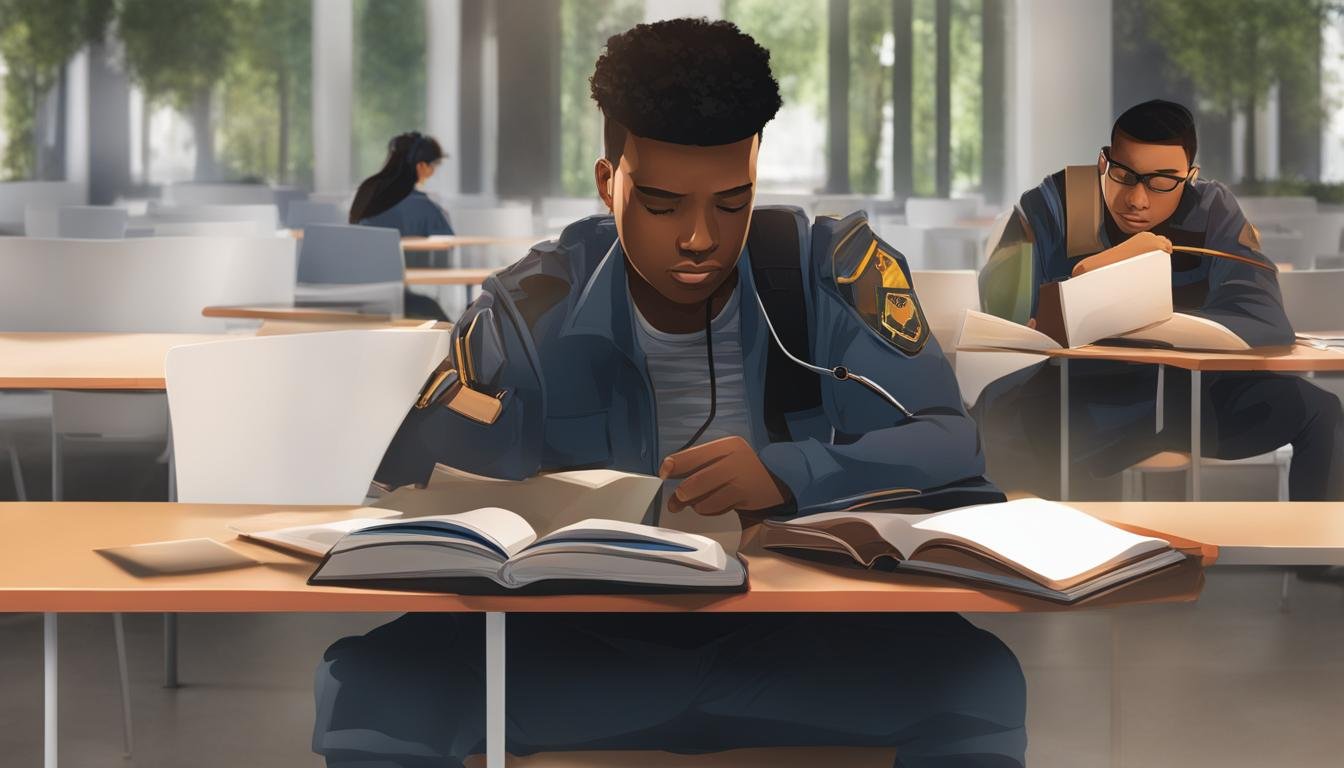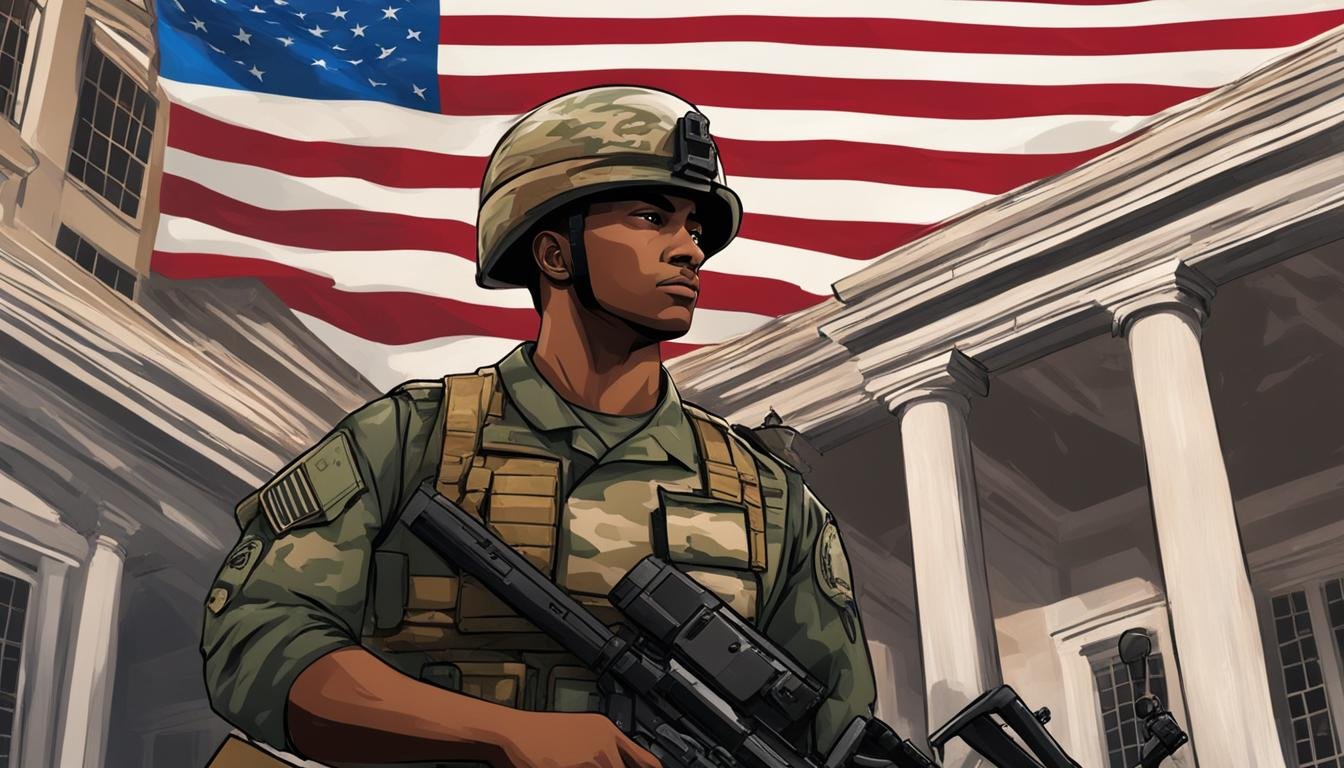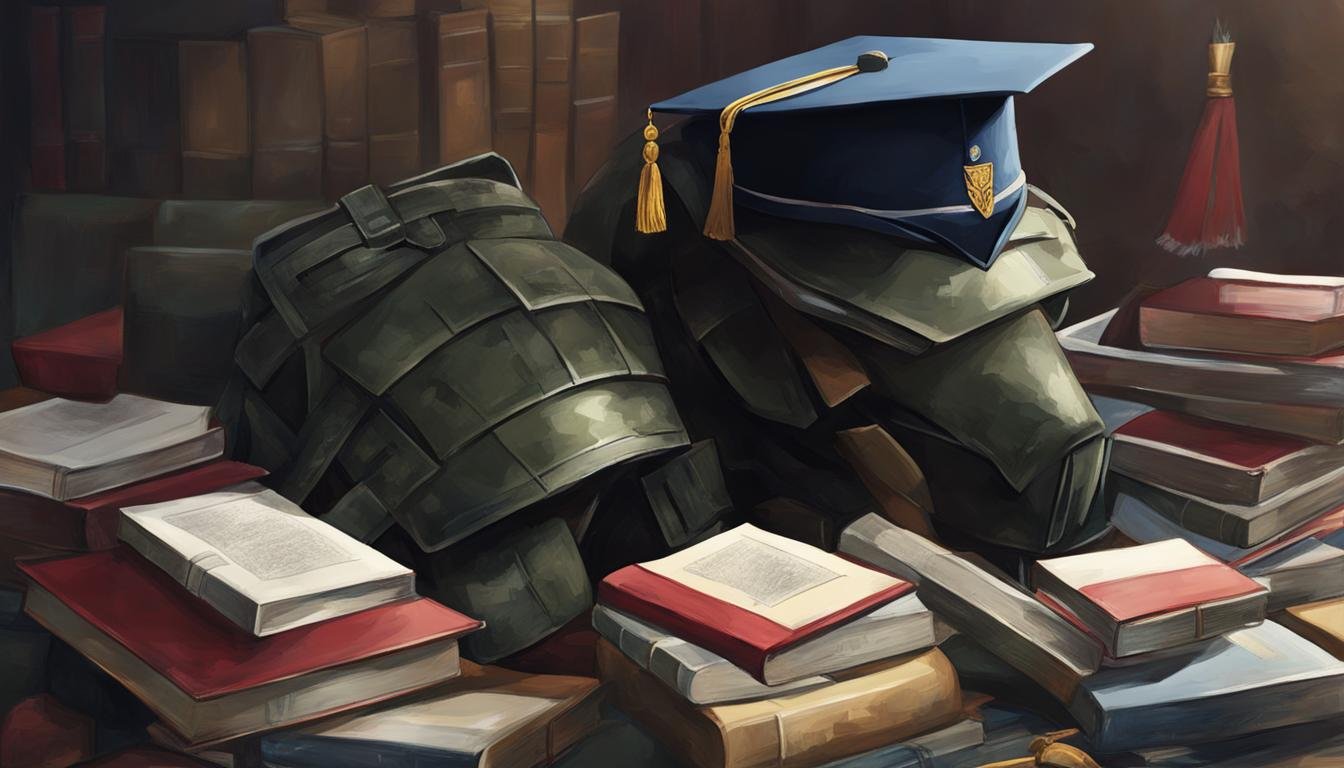In today’s article, we will explore the significant impact of transfer policies on the academic success of veterans in higher education. The ability for veterans to smoothly transition from military life to college can be influenced greatly by the policies in place governing the transfer of credits and recognition of their valuable military experience.
It is essential to understand the historical relationship between higher education and the military to grasp the context of these transfer policies fully. The GI Bill, for example, has played a vital role in opening up educational opportunities for veterans, paving the way for their successful integration into the academic world.
However, the current state of transfer policies presents challenges for veteran students. Issues regarding the recognition and awarding of credits for their military experience can hinder their academic progress and delay degree completion. This, in turn, affects their eligibility for financial aid and support.
In the next sections of this article, we will delve further into the challenges faced by veteran students in higher education and explore strategies for promoting their academic success. By understanding the impact of transfer policies and implementing best practices, we can ensure that veteran students receive the support they need to thrive in their academic pursuits.
Key Takeaways:
- Transfer policies have a significant impact on the academic success of veteran students in higher education.
- The recognition and awarding of credits for military experience are crucial for facilitating a smooth transition and timely degree completion.
- Challenges exist regarding the current state of transfer policies, potentially affecting financial aid eligibility and support for veteran students.
- By implementing best practices and providing tailored support services, universities can promote the academic success of veteran students.
- Continued support and resources are necessary to ensure the well-being and success of veteran students in higher education.
Challenges Faced by Veteran Students in Higher Education
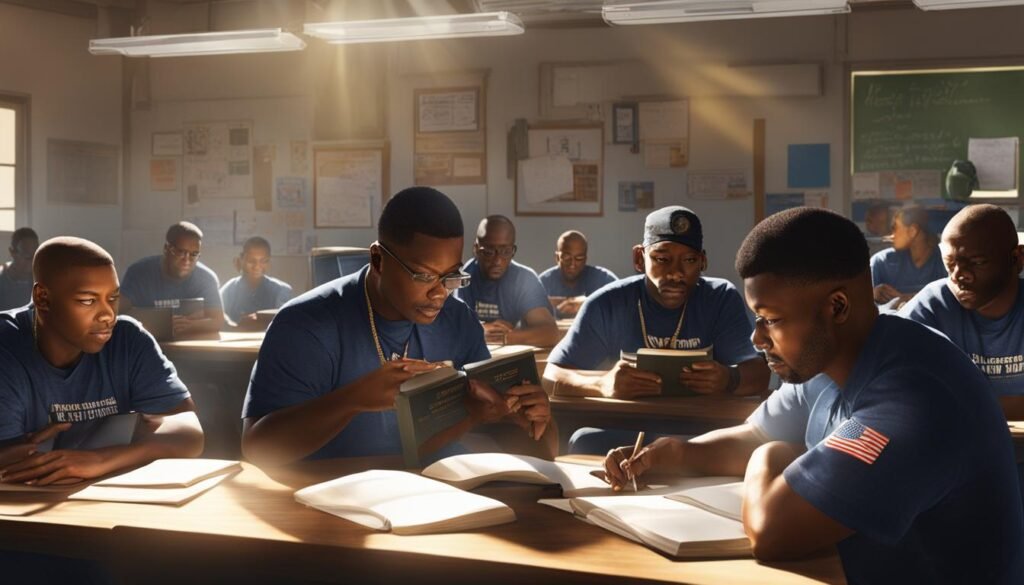
Veteran students face unique challenges when pursuing higher education. These challenges can impact their overall success and require specialized support and resources to ensure a smooth transition from military to civilian life.
Transition and Adjustment
One of the primary challenges veteran students face is the transition from military to civilian life. The structured and disciplined environment of the military can be vastly different from the freedom and autonomy of a university setting. This transition can lead to feelings of isolation, difficulty in adapting to new routines, and navigating the complexities of campus life.
“The transition from military to civilian life can be overwhelming. It’s like starting a completely new chapter in your life, with its own set of challenges and expectations.” – Nathan, Army veteran and college student.
Mental Health and Physical Disabilities
Another challenge faced by veteran students is dealing with mental health issues such as post-traumatic stress disorder (PTSD) and depression. These conditions can be exacerbated by the stress of academic pressures and the demands of coursework. Additionally, some veterans may have physical disabilities resulting from their time in service, making it more challenging to access campus facilities or participate in certain activities.
Impact of Transfer Policies
Transfer policies in higher education can also present challenges for veteran students. These policies determine how credits earned at previous institutions, including military training and experience, are applied towards a degree program. Inconsistent transfer policies across institutions can result in delays in degree completion and create confusion for veteran students, who may need to retake courses they have already completed or navigate complex credit evaluation processes.
To address these challenges, it is crucial for universities to provide comprehensive support systems tailored to the unique needs of veteran students. This includes mental health services, disability accommodations, and clear and transparent transfer policies that recognize and value the skills and experiences gained during military service.
| Challenges Faced by Veteran Students | Impact |
|---|---|
| Transition and Adjustment | Feelings of isolation, difficulty adapting to new routines, navigating campus life |
| Mental Health and Physical Disabilities | PTSD, depression, physical disabilities affecting access and participation |
| Impact of Transfer Policies | Delays in degree completion, confusion from inconsistent policies, need to retake courses |
By recognizing and addressing these challenges, university administrators and faculty can ensure that veteran students have the necessary support and resources to thrive academically and achieve their academic goals.
Promoting Success for Veteran Students
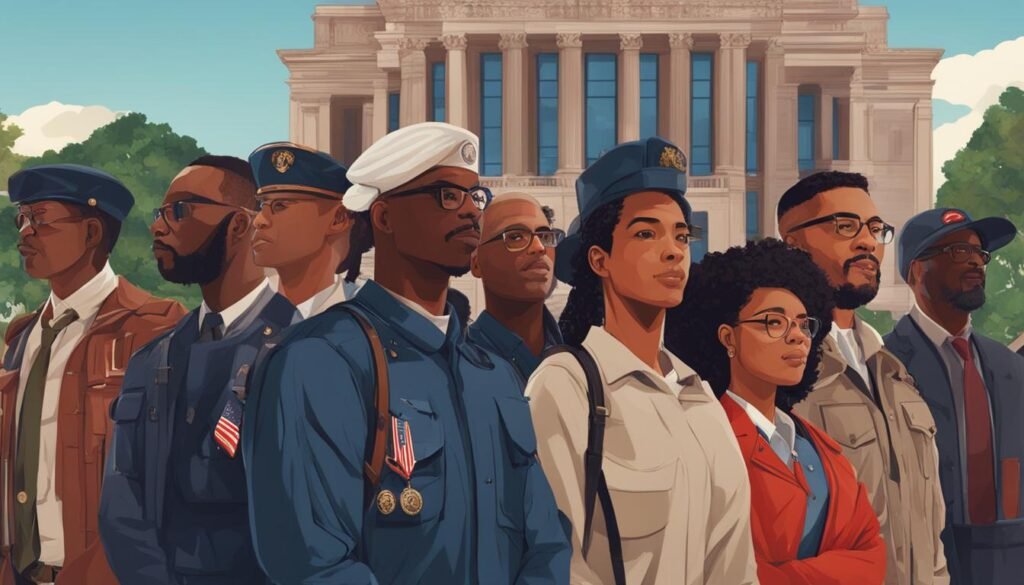
Ensuring academic success for veteran students requires a comprehensive approach that addresses their unique needs and challenges. In this section, we will explore best practices and strategies that can be implemented to promote the success of veteran students in higher education.
Faculty Development and Support Services
One key factor in promoting veteran student success is providing faculty development and support services that are tailored to their needs. Faculty members can benefit from training programs that increase their understanding of the military experience and equip them with the knowledge and skills to effectively support veteran students in the classroom. Additionally, establishing support services such as veteran resource centers or student organizations can create a sense of community and provide a valuable network of support for veteran students.
Cohort Models and Dedicated Advisors
Implementing cohort models for veteran students can contribute to their success by fostering a sense of belonging and camaraderie. By grouping veteran students together, institutions can provide a supportive environment where they can share their experiences and support one another academically and emotionally. Additionally, assigning dedicated advisors who have expertise in working with veteran students can ensure that their unique needs are met, ranging from academic planning to accessing resources both on and off-campus.
Access to University and Community Resources
Another crucial aspect of promoting success for veteran students is ensuring their easy access to university and community resources. This includes access to mental health services, disability support services, career counseling, and financial aid information. By streamlining the process and providing clear guidance, institutions can help veteran students navigate these resources effectively, reducing potential barriers to their academic success.
By implementing these best practices and strategies, institutions can create an environment that supports and promotes the success of veteran students in higher education. It is essential to recognize the sacrifices and unique experiences of our veteran students and provide them with the necessary tools and support to thrive academically and personally.
“Veteran students have unique needs and challenges that require specialized support from faculty and staff. By implementing targeted strategies and providing access to resources, we can ensure their academic success and smooth transition into civilian life.” – Dr. Jane Miller, Director of Veteran Services
How Do Transfer Policies at Military-Friendly Colleges Impact Veteran Academic Success?
Transfer policies at military-friendly colleges play a significant role in veteran academic success. These policies should align with militaryfriendly college criteria to ensure a smooth transition for veterans. Proper evaluation of military training for college credit and flexible transfer options can greatly impact veterans’ educational attainment and overall success.
How Does the Transfer Policy Impact the Success of Veteran Students in College?
The impact of veteran services on the success of veteran students in college is significant. A well-designed transfer policy can make a difference in their educational journey. By recognizing their unique needs and maximizing their prior experience, colleges can help veteran students thrive in their academic endeavors.
Conclusion
In conclusion, the impact of transfer policies on the academic success of veteran students cannot be overlooked. Through the historical lens of the GI Bill, we have seen how transfer policies have opened up educational opportunities for veterans and allowed them to pursue higher education. However, the current state of transfer policies presents challenges that hinder veteran students’ progress.
Challenges faced by veteran students in higher education include mental health issues, physical disabilities, and the transition from military to civilian life. These challenges are further exacerbated by the effects of transfer policies, such as delays in degree completion and limited financial aid eligibility. It is crucial to address these challenges and provide adequate support to ensure the success of veteran students in their academic journeys.
By implementing best practices and strategies, we can promote the success of veteran students. Faculty development and dedicated support services tailored to the unique needs of veteran students play a crucial role in facilitating their academic progress. Cohort models, dedicated advisors, and access to university and community resources further enhance their chances of success.
In conclusion, transfer policies have a significant impact on veteran academic success. Continued support and resources are essential to address the challenges faced by veteran students. By implementing the best practices highlighted in this article, we can ensure that transfer policies not only meet the needs of veteran students but also foster their academic success.

